
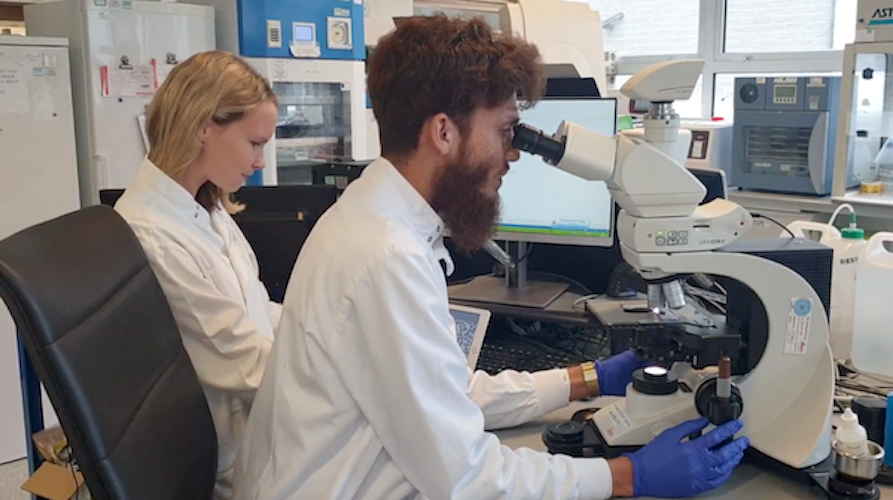
Did you know the hospital deals with thousands of samples each week? Express met the dedicated group of 'hidden' researchers and 'disease detectors' helping change islanders' lives, one test at a time.
To promote the work they do behind the scenes, staff working in the hospital pathology department have opened the doors to their lab on Biomedical Science Day.
70 staff work within the pathology department at the General Hospital helping identify, research, monitor and treat diseases.
They are divided into different teams, each researching different aspects and samples, according to their individual specialisation.
In the microbiology department, the biomedical scientists and lab assistants process all kinds of samples - blood, of course, but also swabs, urine and faeces. Every week, the 16-strong team receives up to 1,300 samples from the hospital as well as from GPs around the island.
Video: Express met the team working hard behind the scenes.
Their work is mostly manual, as Biomedical Scientist Claire Daws explains, it’s difficult to automate. They try and target the properties of organisms and plate samples to incubate them to watch how bacteria develop, before offering guidance to doctors on medicine or possible causes.
Next door, in the virology department, a smaller team looks at genes, antibodies and blood serum.
Further along is Histology, where tissue samples such as tumours are analysed. The samples are “sliced” and processed until they are one-cell thick on a glass plate.
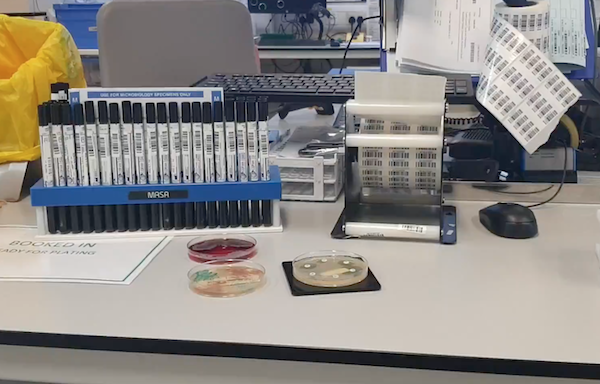
Pictured: The microbiology department processes all kinds of samples, such as blood, swabs, urine and faeces.
Becky Touzel, a “home-grown scientist” specialised in the area, explained: “Histology is the investigation of the pathology of the tissue. We try and identify the underlying cause of disease.
"It can be a small biopsy - skin, breast, prostate - to look for cancer or it can be larger. We process the samples and investigate.”
There is also a blood transfusion area where all blood products donated by islanders are screened and prepared ready for donation. The service also checks transfusion requests to find the batch that is the most compatible.
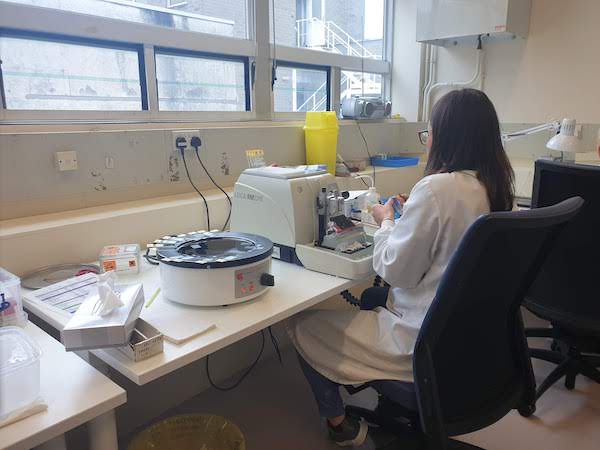
Pictured: The histology department looks for underlying cause of diseases in tissue samples.
In the blood sciences department, two teams share the work. On one side there is haematology, where the scientists study the blood cells and look at blood components; on the other, blood pathology.
Muhammad Razaq, known as Raz among the haematology team, said: “Most of the time, doctors will ask for a full blood count. We put the samples in a machine which gives us the results. A biomedical scientist will then look at the results. If everything is normal, we will tell the GP, if not we will tell the consultant to look into it.
“By looking at the cells, we can tell if someone as an iron deficiency, anaemia, kidney problems, a viral infection or septicaemia. The consultants depend on us.”
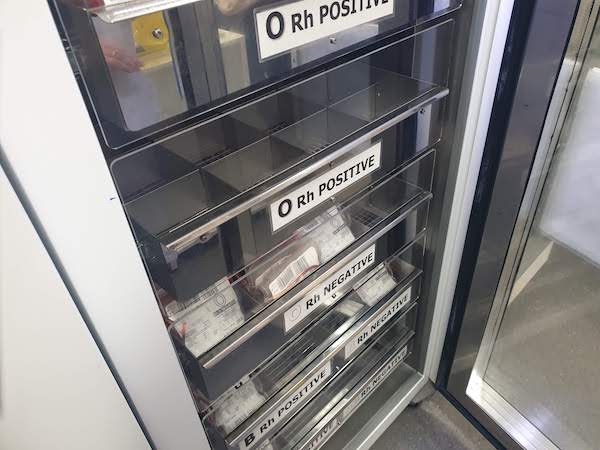
Pictured: Blood batches are stored in fridges waiting to be transfused.
Finally, there is the chemistry lab, an area of the service that is heavily automated.
While staff are required to put the samples manually into the machine, it then does all the work, from uncapping the samples to reading their labels, processing the necessary tests before sorting the tubes back, ready for storage or for further tests, sometimes off-island.
Once the samples have been processed by the machine, it’s up to the scientists to look at the results, to check their quality and analyse them before sending them to the relevant person.
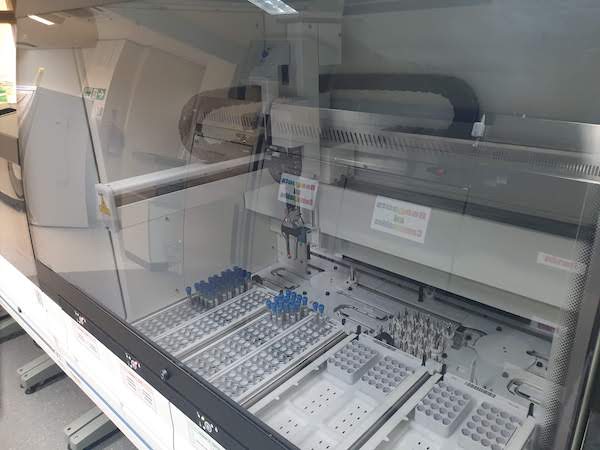
Pictured: The biochemistry department is heavily automated.
“About 70% of patients are diagnosed due to the work carried out in laboratories but many people do not know the work that biomedical science staff do,” Adrian O’Keefe, Pathology Manager, explained.
“Biomedical science is such a varied profession and is integral to helping to diagnose and treat patients. We hope that by taking part in this annual day we can help everybody understand the vital role of biomedical science in healthcare.”
Deputy Richard Renouf, the Health Minister, added: “Our laboratory is the engine room for healthcare in the island. I commend our dedicated biomedical staff who work hard to provide doctors with the answers they need to treat us.”
Pictured top: Muhammad Razaq, a Biomedical Scientist, looking at blood samples.
Comments
Comments on this story express the views of the commentator only, not Bailiwick Publishing. We are unable to guarantee the accuracy of any of those comments.